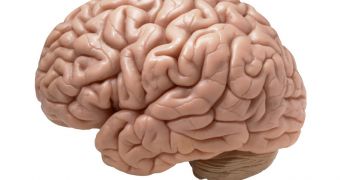A collaboration of investigators from the University of Texas Health Science Center (UTHealth), in Houston, and the University of California in San Diego (UCSD) demonstrated in a new study that harmless electrical stimulation applied to a particular area of the brain can help improve self-control.
The effect was achieved by amplifying a brake mechanism in the human mind, which enables us to exercise self-control when we have to keep our behaviors in check. This naturally-occurring system is very important because it is one of the main factors allowing us to function properly in social groups.
During experiments, scientists asked test participants to perform a series of tasks that required them to exert self-control, while brain-imaging techniques were used to look at how various regions in their cortices activated in response. Parts of the prefrontal cortex were found to play a key role here.
The PFC is one of the newest areas of the human brain, and it plays important roles as a command and control center for our minds. The research team found that applying non-harmful electrical stimulation to parts of the PFC led to an increase in subjects' ability to use their neural braking mechanism in exerting self-control.
Interestingly, as the signals were applied via small electrodes, researchers were able to boost self-control in test subjects right at the moment when they needed it most during the experiments.
“There is a circuit in the brain for inhibiting or braking responses. We believe we are the first to show that we can enhance this braking system with brain stimulation,” says the senior author of the new study, Nitin Tandon MD, who is an associate professor with the Vivian L. Smith Department of Neurosurgery at UTHealth.
The team controlled its findings by installing the electrodes in other parts of the brain, and then applying the same minimal-intensity currents. No positive effects on self-control were discovered.
Previously, most studies involving electricity and the brain were conducted to demonstrate that general brain function could be disrupted, something that is of great importance for treating some diseases. By contrast, this study shows that some functions can be enhanced by external factors.
The study will have to be replicated thought, because it only included four epilepsy patients. This low rate of participation is understandable, considering that the research involved implanting electrodes in the brains of all participants. All four test subjects exhibited the boosting effects, the team says.
In the future, scientists hope to be able to achieve this effect by using electrodes on the scalp. Even further down the line, they are looking at the prospect of using medication to target this circuit, with the same effects, Forbes reports.
Details of the research appear in the December 11 issue of the esteemed Journal of Neuroscience.

 14 DAY TRIAL //
14 DAY TRIAL //